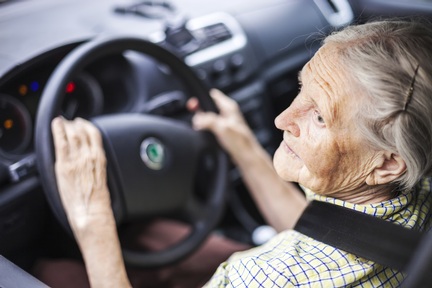Study dispels 'myth' that elderly are dangerous drivers
Older people are not dangerous drivers and introducing stricter testing for them will not reduce road accidents, research by Swansea University reveals.

Dr Charles Musselwhite from the university’s Centre for Innovative Ageing says his research dispels the myth that older people are dangerous drivers and shows that people aged 70 and over are relatively safe compared to other age groups.
Dr Musselwhite said: “My research has suggests that while people think older people are dangerous on the road - they aren’t. People also think testing old people will make the roads safer - it won’t.”
Discussing his findings at the British Science Festival at Swansea University, Dr Musselwhite said introducing more stringent testing would not weed out the most dangerous drivers.
His research reviewed countries such as Australia with stricter tests for older drivers and found little difference in collision rates for older drivers.
He challenged interpretations of STATS19 data collected by police at the scene of a collision, which suggests that older people are more likely to be at fault than younger drivers when turning right across traffic. It stated that while they look out for other drivers, they failed to see and failed to judge other driver’s speeds.
Not driving can speed up their death
He argues that when older people give up driving, it can actually hasten their death. While the over 70s make up just 19 per cent of pedestrian activity, they account for 40 per cent of pedestrian deaths and 21 per cent of people killed or serious injured.
He said research into frailty could provide an explanation for these increases, as older people are more likely to be a casualty of their collision because of their susceptibility to injury.
Road crossings are not designed with older people in mind, as they do not give them enough time to cross the road, because it is timed to the pace of the average pedestrian.
The pedestrian environment can be unsafe for older people as badly maintained pavements can reduce the ability for older people to get out and about. Dr Musselwhite suggests alternatives to driving must be improved to safeguard older people who are forced to give up driving, as this lifestyle change is associated with a deterioration in health and wellbeing, including: depression, feelings of stress and isolation.
Driverless cars
He said driverless cards could have a role in helping to make a smoother transition to giving up driving.
Dr Musselwhite said: “While the promise of driverless cars is a long way off, there is a need to look how technology can support, improve or replace driving for older people. For example, technologies that take over some or most of the driving might help overcome some of the issues older drivers face, which could present new opportunities providing the technology is easily maintained.”
Latest News
 29-Jul-24
Dementia Bus gives carehome.co.uk staff insight into life with dementia
29-Jul-24
Dementia Bus gives carehome.co.uk staff insight into life with dementia
 27-Jul-23
UK's top home care agencies in 2023 revealed
27-Jul-23
UK's top home care agencies in 2023 revealed
 30-Nov-22
A quarter of older people keep their falls secret from family
30-Nov-22
A quarter of older people keep their falls secret from family
 29-Nov-22
'Covid-19 has not gone away' say terminally ill
29-Nov-22
'Covid-19 has not gone away' say terminally ill
 28-Nov-22
IT consultant who received poor care opens 'compassionate' home care business
28-Nov-22
IT consultant who received poor care opens 'compassionate' home care business